Sales in the aviation industry are often initiated at an industry trade show or personal contact.
Until last year, when it became more important than ever for customers to be able to find you online.
Aviation companies are more dependent than ever on their aviation web sites to represent them well and make first contact with prospects, to deliver information on-demand as customers now expect, and to encourage ongoing contact and relationships with your company.
Here are twelve signs your web site could be due for a refresh.
[embedyt] https://www.youtube.com/watch?v=x39b4bG8FHk[/embedyt]
Paula Williams: Welcome to this week’s episode. I am Paula Williams.
John Williams: I am John Williams.
Paula: And we are ABCI and ABCI’s mission is…
John: To help you ladies and gentlemen out there in the aviation world sell more of your products and services.
Paula: Absolutely. So this week we are talking about twelve signs that you need a website refresh. And, John has a new coffee cup.
John: Well, because of some of your feedback.
Paula: Exactly. This is for Tiberius Baxter[?] who wrote in a few weeks ago and was talking about how John oozes sarcasm, I think is the term he used.
John: Or sourcasm.
Paula: We really appreciate your comments, even when they are interesting. We like to hear what you like about the podcast, what you do not like about the podcast. Do make sure that you like and share the episodes that you like and want to share because it does really help the industry get better at sales. Getting better at sales improves profits. It improves the industry. It improves innovation, supports everybody’s families, the whole nine yards.
John: And makes it safer. In general.
Paula: And It makes it safer. Absolutely. The more the merrier. So do share the love and let us know what you think. Even if you do not love it.
Okay, so twelve signs that you need a website refresh. We have been seeing a lot of these lately and it just changed over to the New Year. It is now January or February when you are listening to this, and a lot of websites still have like 1996 in the footer, you know, copyright information. So now is a really good time to take a look at your website and see that is not the only sign that maybe it is outdated.
John: The first and most important sign that you need a website replaced, refreshed, is when you get a call from one of your previous customers, “Are you still in business? I can’t tell by looking at your website.” And that has actually happened to one of our clients.
Paula: It is time to refresh your website if people look at your website and they wonder, this looks like 1985. I wonder if this company is still in business. And that really is the first thing that goes through some people’s minds when they see a very visually outdated website. They think, is this company really still active and are they really still somebody I should be doing business with? So, visually out of date.
A second reason is maybe your competitors have redesigned. That is usually a sign that there is something that has happened in the market that you should take a look at. It is possible that they are going to adjust their search engine optimization. It is possible that they are going to update their product and service offerings and other things like that.
So you do want to take a look at your competitors’ sites on a frequent and regular basis. We do that with our clients once a month when we do their reports and things like that. Just to make sure that we are still up to date. If they have changed something, then that is often a sign that we should too.
John: We discuss from time to time our own website and whether it needs to be refreshed.
Paula: Exactly. We are watching those search engine numbers and traffic numbers for ourselves and our competitors and for our clients and their competitors. To look for any huge variations. And when you see somebody’s website, all of a sudden, that has been petering along for years, all of a sudden, go through the roof for a particular keyword. You are thinking, hmm.
John: Or you should be thinking.
Paula: Time to do something and recognize the competition is a force in business and a force in aviation, and it needs to be responded to.
Third one is that your site is text-heavy. I love text personally, and I love having a lot of text on a website. But there is a lot of ways to organize that text in ways that are visually attractive and most of it should be, what we call, below the fold. The reason they call it that is because, remember when they used to print newspapers on paper. And then they would fold that paper, and then they would fold it again.
So if we had a paper here, and we do not get the paper anymore, they stopped printing The Wall Street Journal in our area, so here we are, without a newspaper to show you. But they fold it up so that the top half of the page is what is visible when you are looking at a stack of newspapers. Or if you are at one of those old newspaper machines with the window in front that shows what is on the newspaper. So that is what we call above the fold, if it is in the visible section of that front bit of paper.
John: Which translates to what you see on screen, typical eight and a half by eleven screen PC.
Paula: So in the business, we call that above the fold, when really nothing is folded.
John: But whatever your screen is, it will adjust so you see the top half.
Paula: The top bit of the page. That should be incredibly visual because people process visuals a lot better than they process text. They will never read your text unless you capture their attention with a really striking image on especially on your homepage. Other pages, maybe not quite so much. They are expecting more data…
John: As I click away from the front page.
Paula: But anytime you can use charts or graphs or a picture or anything else in that front top part of a page, you want to do that. Do not be text-heavy. If you are, that is a good sign that you need a website refreshing.
John: At least if it is on the front page.
Paula: Your navigation is complicated. How many times have you gone to a website and not been able to find what you are looking for.
John: Too many times. It only happens when you actually want to buy something.
Paula: It is really important for aviation decision-makers, especially because they are busy people. If they cannot find what they are looking for, they are just going to call your phone number.
John: If it is there.
Paula: Or they are just going to click to the next website on the list and go to your competitor for what they are after because they could not find it on your site. So they think you do not have it, or that it is not emphasized, or that you do not know what you are doing.
John: Or it is just too frustrating.
Paula: Exactly. That you are not going to be easy to deal with in person because people extrapolate their first impression. Which, if that is your website, they think, oh, wow, these people are confusing and messy and hard to deal with.
Number five. Your website does not show up well on Google. Now this did not used to be all that important to a lot of companies that did most of their first contacts by trade show. So, you meet somebody at a trade show, you hand them your card or a brochure, they go home. When they need something, they have got your card. They look you up on the web. No search engine involved.
John: Except now, the trade shows, at least for last year, and looking like this year maybe, moot.
Paula: HAI just got canceled. That is disappointing.
John: We were gonna go to it.
Paula: We are all missing the trade shows. But what that means is that if somebody needs something they have not met you in any other way. Likely they are going to go to Google or to DuckDuckGo or to Bing or to Yahoo, or whatever, and they are going to type in…
John: Whatever they think they are looking for.
Paula: Hangar space in Cleveland, or whatever it is that they need at the moment. If they do not find you they are going to go to somebody else who has hangar space in Cleveland that they can find on the web. And they are not going to spend a lot of time on it. They are going to look at the first three to five results and go with that. And if you are number twenty-five for hangar space in Cleveland, and that is what you want to sell, you are up a creek, without a paddle.
John: Yes. I sometimes will go to the second page if I am looking for something particular. But beyond that I will do another search.
Paula: But if you find what you are looking for in the top three or five results, you will never scroll past. So you want to be in the top five for your really important keywords. And for each of our clients, we do a top ten list of keywords. Then we try to get them into the top five on Google when we are doing a CEO for a client.
And when we do a website redesign or refresh, of course it is primary. In fact, the way that we structure their site will be so that those keywords are primary in the actual way that we set up their navigation and everything else. Because there are some ways of making that work better and more efficiently. So that people find exactly what they are looking for. And they find you.
You cannot update your content easily. If I went right now to the About Us page on your website, are all of those people still working with you? My guess from the experience that I have in working with websites is probably not. There is somebody there that has already moved on. Or there is some new person that is not yet listed.
John: Or somebody got promoted.
Paula: Or somebody has the picture from 1987 in there.
John: 1990-1996 website.
Paula: You have got some really dated material and dated pictures and other things on there.
The reason that that happens often, is because your website is not easy to update. You have to call a web designer and pay them hundreds of dollars to make a simple change. If that is the case, you are just not going to do it. What you really need to have is something that you can either update yourself or you got somebody who can do it inexpensively as part of the service that they provide for you on a weekly or monthly basis.
Low conversions. Now, what is a conversion? Is that a religious experience?
John: It might be, depending on what you are selling.
Paula: On a website, a conversion is usually when someone does what you want them to do. On a lot of websites, the conversion event is sign up for our newsletter, pick up the phone and give us a call, fill in a Contact Us form, request a demo, request a quote. Do something. You want someone to do something as a result of having been to your website.
If nobody is doing anything as a result of having been to your website and you have got this Join Our Newsletter form on your website and nobody has filled it out in months, that is a sign.
John: That you need a website refresh.
Paula: Your website is not doing its job. It is not earning its keep. It is not worth having. If it is not inspiring some kind of action.
John: I have even heard people say that, well, we just use our web site as a sort of a resume. Well, maybe. But if you are really trying to do sales, you got to do more than that.
Paula: And why? Why is that all your website is? Why bother having a website if that is all it is. It is so easy to make it interactive, to invite people to do something. To participate in your company.
John: One would think.
Paula: If you are in business, you want customers, or partners, or students, or whatever it is that you want.
If you have a, and this is actually two but we are lumping them together, a high bounce rate or low amount of time on the site. In this example, the bounce rate is eighty-three point six eight. So what does that mean? That means that eighty-three point six eight people, of the people that visit this website, about eighty-four of them.
John: If a hundred people did it, then eighty-three or eighty-four of them actually saw the page and said, “Screw it” and left.
Paula: The bounce rate just basically means they arrived on the first page on your site, they did not interact with anything else. They did not touch the navigation. They did not touch any links. They did not scroll up and down. They did not do any of those kinds of things. They just left.
If your website is something that people check periodically because you do market rates or something like that, and you send out an update once a week, that is okay. That is what you expect. People are just going there for one piece of information and they are on their way.
John: But you need to do the analysis and do it frequently and regularly.
Paula: But for most of us, we have got a lot of information on our website and when someone comes to our website, we expect them to spend a little bit of time scrolling, or navigating around, or reading, or looking. We want that time on page, or time on site, to be long. And we want the bounce rate to be low.
Number eleven. Slow load speed. These are not in any particular order because any one of these can be really a killer.
John: Except for the one I said first.
Paula: Of course, that is the most important, because John said it was.
John: If somebody calls you and tells you, “Are you still in business? I cannot tell from your website.”
Paula: Well, this could be even worse because if your site loads too slow, it will never come up and they will assume that you are out of business and they will not even call and ask if you are out of business. They will just go, “Oh well, those guys are not even there anymore.”
So people have very little patience nowadays. They have their mobile devices. A lot of them are in load data mode and are just looking for something really quickly. If your site does not load fast, they are going to assume that it is not there. They are going to go on to the next source of information. Because they are looking for an answer to a question or they are looking for a particular product or service really quickly. Pilots en route to an airport will use their cell phones to find the lowest gas price or the lowest tie down or place to have lunch or whatever it is that they are looking for.
So they say, you have the airplane, and John has the airplane, and I have the cell phone and I am looking for a hotel for lunch or whatever. So if something does not load quickly without a lot of data on my phone, then I am going to assume, I am going to go on to the next thing. And somebody has lost out on a fuel sale, or a lunch, or a night in a hotel.
Also, that will drop you down, we talked about Google rank, Google will punish you if your site does not load quickly. They will not put you in the top five on that list because they do not want to frustrate the people that are using their service. They want to have the best pages up at the top as they should.
Number twelve. This one has come to light because as of last month, Adobe Flash is no longer supported. So if you have a website, and there were a lot of them that used Adobe Flash for some thing, whether that is a slider or a calculator, or some kind of animation, or any number of different things. There is going to be a broken thing that looks like this. It is a big grey square with a broken puzzle piece saying, error the Adobe plug-in is not working, or is not found, or is in error. The Adobe company is no longer supporting that. So if your site depends on technology that is no longer being used, your site is broken. And having a broken website looks really bad.
John: Or you have got a website that will not readjust the picture for an iPad versus an iPhone versus the computer. It is just broken.
Paula: So there is number thirteen. Is your website mobile-friendly. If it is not mobile-friendly, and it does not look good. Type in your website or your address into your iPhone or your Android or whatever, and take a look at it. There are actually some things on the web that you can use as an emulator so that you can look at at your website on different devices. And see what other people are seeing when they go to your website. On some of them, the page is just as wide as it would be on a big screen and you are having to scroll sideways.
John: So that is not good.
Paula: If you want to read something you have to scroll back and forth every single line. It is insane. People are not going to do that. So that is a very good number thirteen. Good job. I should have consulted you before we did this.
John: I do not have any ideas.
Paula: You have fantastic ideas.
What is included in our website refresh? We actually have a whole article on what the process is like. How we go through our consultation and our Thirty-One Point checklist. And then we create a copy of your site using new technology. And then we basically change all of the things that we agreed to in our Thirty-One Point checklist and make sure that it is up-to-date and meets all of the things that we talked about.
If you do not want it live, your customers will never see anything that we are doing until you approve it. Once you approve it, we usually choose a weekend. We have a nice cut-over process where we make sure that everything is as it should be, and tested, and in good shape. So that people visiting your website one day will see your old site, and the next day they see the new site. With no “Under Construction” signs. Remember they used to have that little animation with the guy. You will never see that.
John: We have a sandbox and we have a URL that is just freaky long and nobody can remember it. So it is written down. You can you can click on, and you know what you get. And you watch as it gets better.
Paula: People who have worked with us on their websites know that this is a really collaborative process. You may think you want one thing and then when you actually see it on the screen, you go, “It is not really what I thought I wanted.” And that is fine. We go through that as many times as we need to until you are happy, and get that site up and running in the way you want it. And something that you are proud to share and is doing its job and is bringing you leads and all of those things.
So it is more important than ever because of Covid. All of those shows that have been canceled, all of those other methods of selling that you have, a lot of them have been either put on hold, or eliminated, or hampered in some way. But your website is the one thing that you have absolute control of. You do not have control over the social media, necessarily. They are all third parties. They run by their own rules. The trade shows are going to do what they are going to do. You cannot control that.
A lot of other things are controlled by third parties that you really cannot influence. Your website though, is your own real estate, it is your property. So if you own a business on your own real estate, the landlord cannot raise the rent on you. You cannot change the rules and say, “You cannot have people park here.”
There is a lot of businesses in our town where the owners of the property are out of town, and they have no idea what is going on in this little community. And they are making the rules for a lot of these small businesses. It is really frustrating for a lot of business owners to be building on real estate that is not their own. And that is what happens when you rely on marketing platforms that you do not control right.
John: And the website, you absolutely control.
Paula: Absolutely. And that is the only one, really. Except if you do printed newsletters and things like that, you are still relying on the post office. It really is the only one that you truly, truly control. Unless you host an event. Like you have a big event, where you invite everybody for dinner.
John: But you cannot do that right now.
Paula: That is true. So that is controlled by the Health Department of whatever county you are in. Crazy stuff. You do own your website. It is a fantastic investment. We recommend at least once every three years to do a website refresh. It might be minor, or it might be major, but do it every three years. Go sell more stuff.
John: Yes, the industry needs the business.
[END]
Podcast: Play in new window | Download
Subscribe: Spotify | Amazon Music | RSS
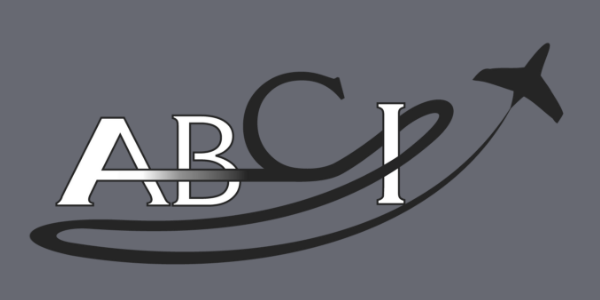
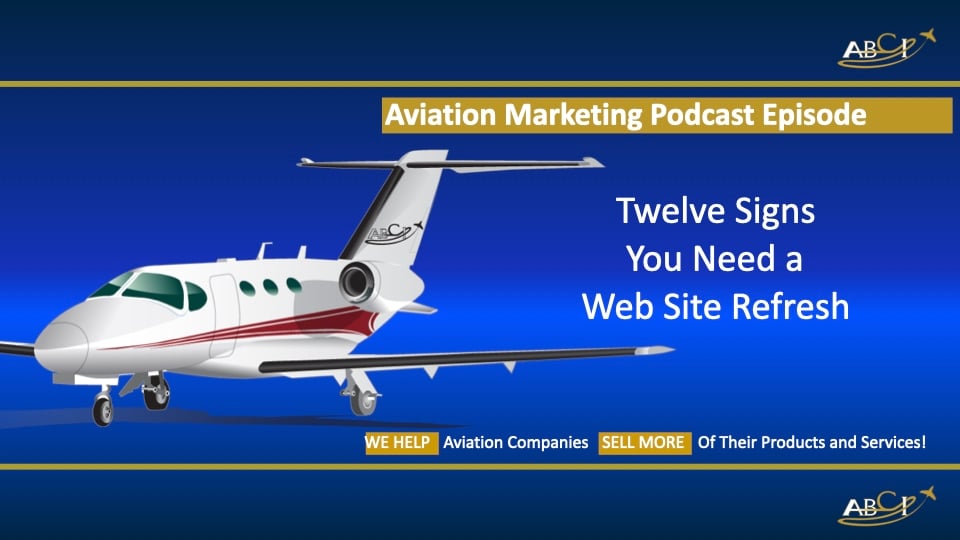
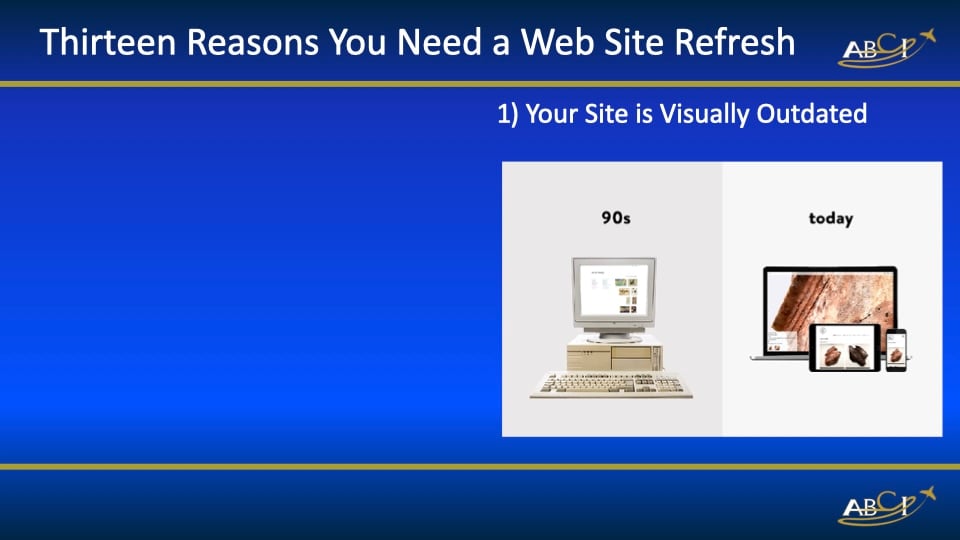
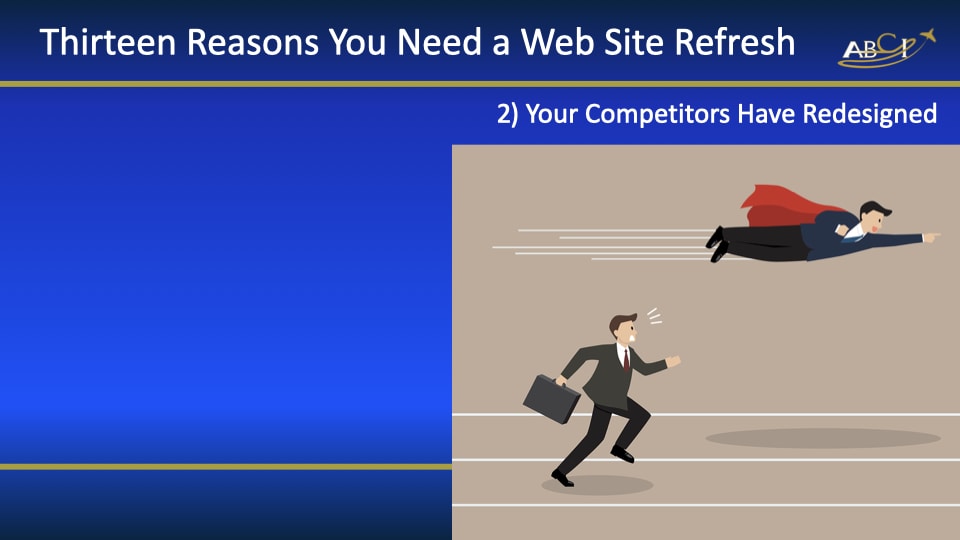
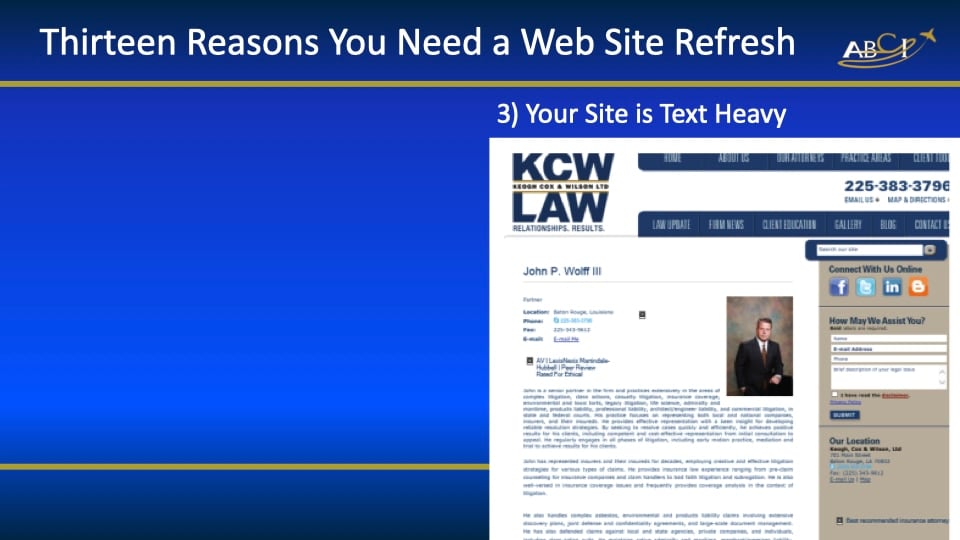
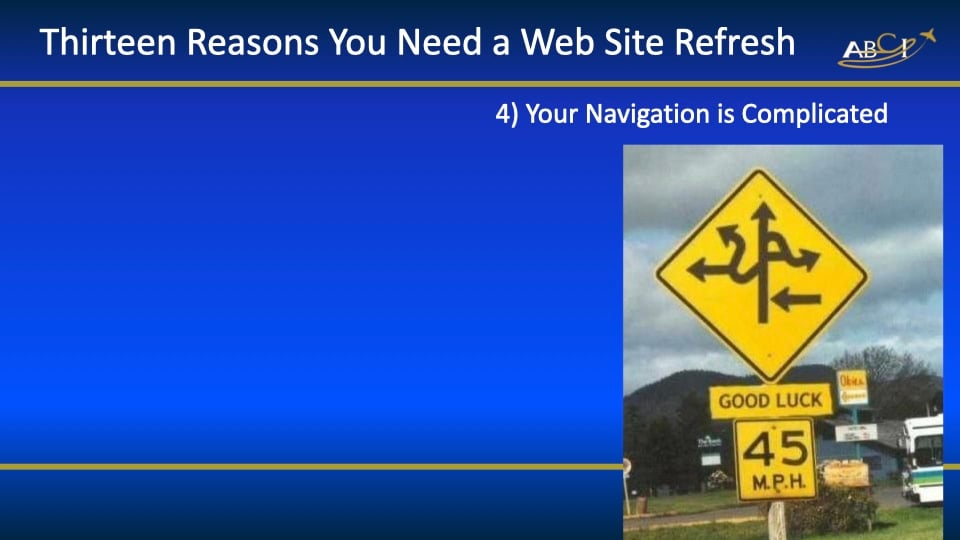
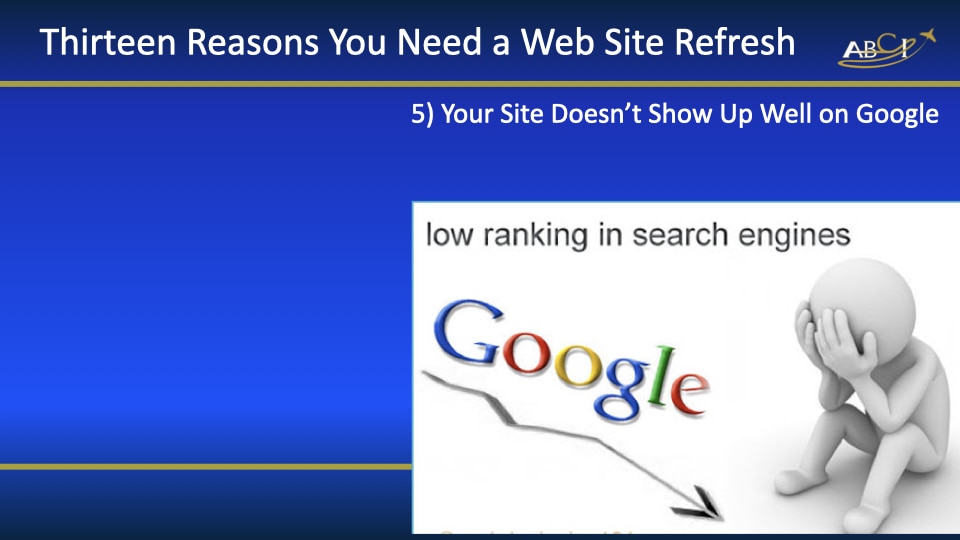
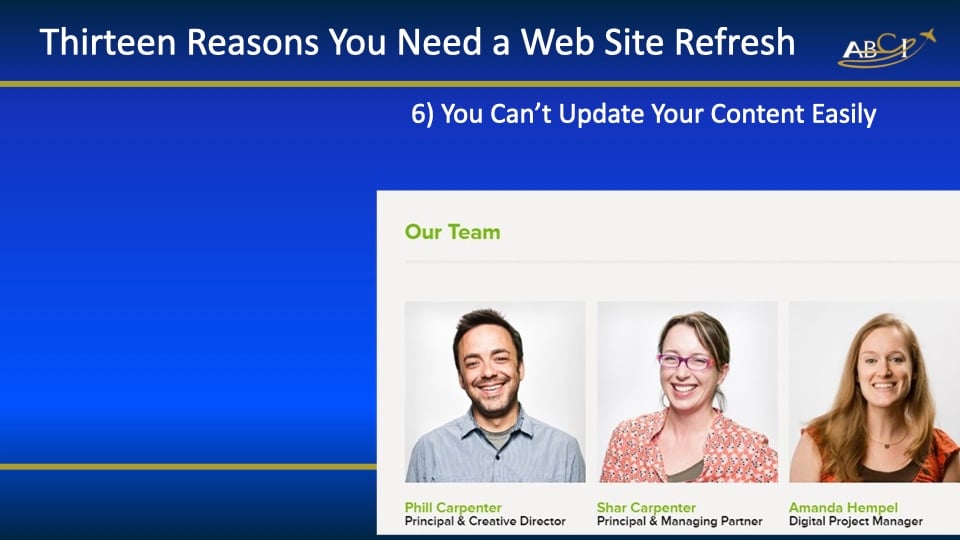
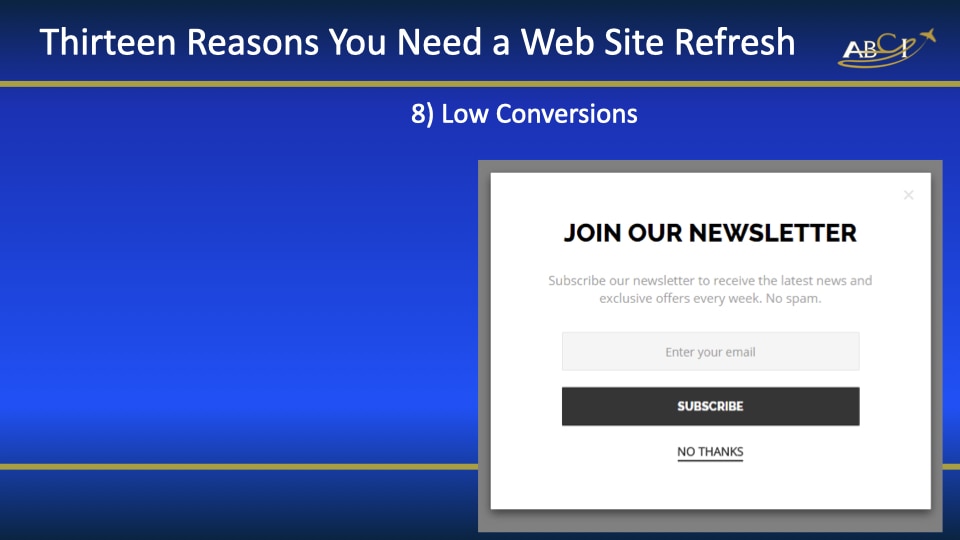
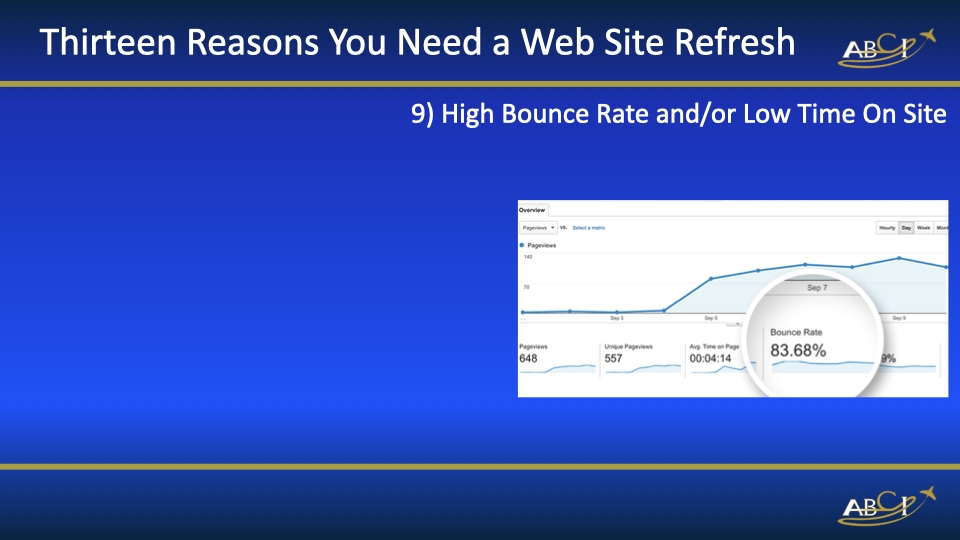
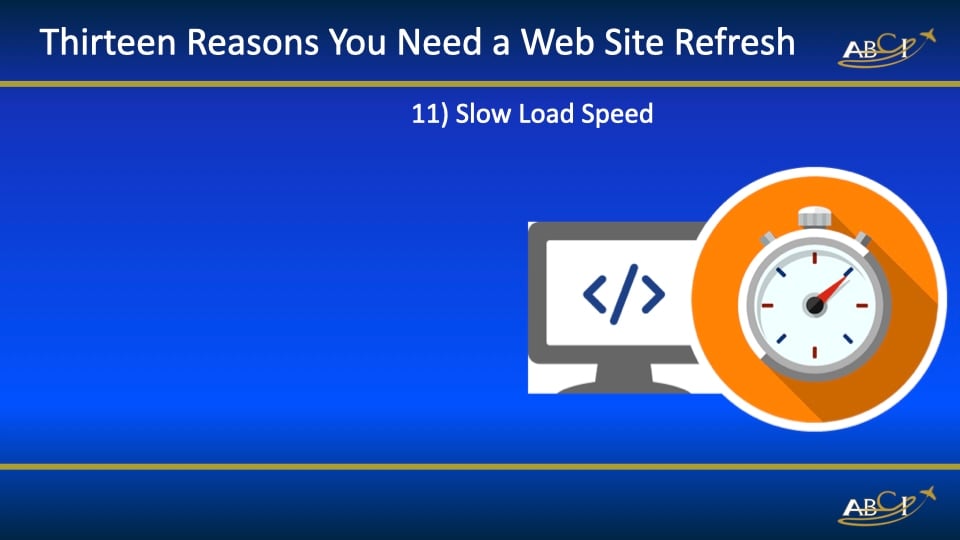
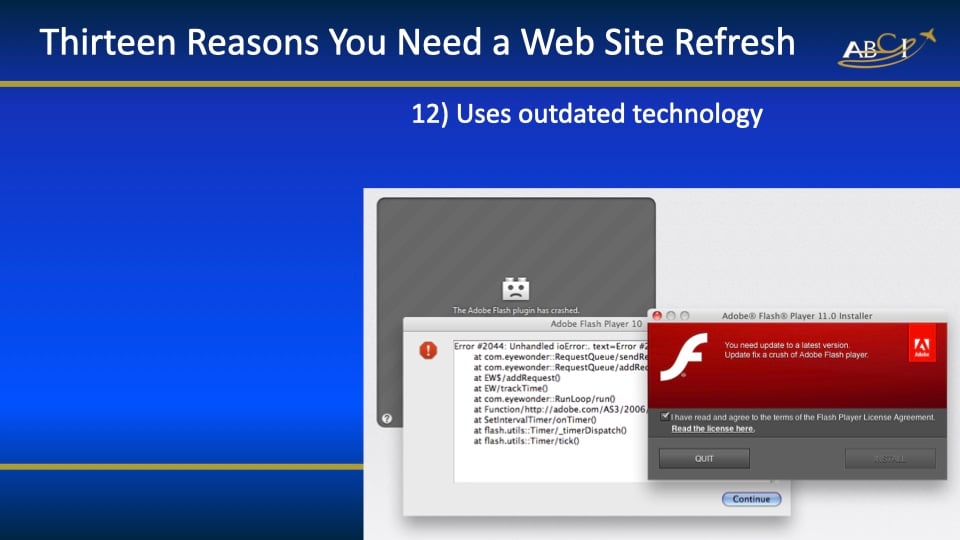
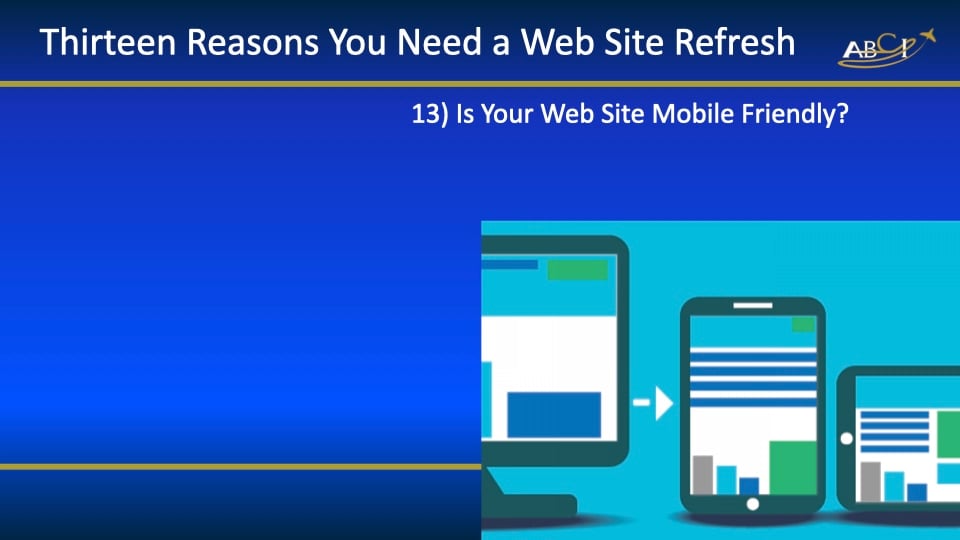
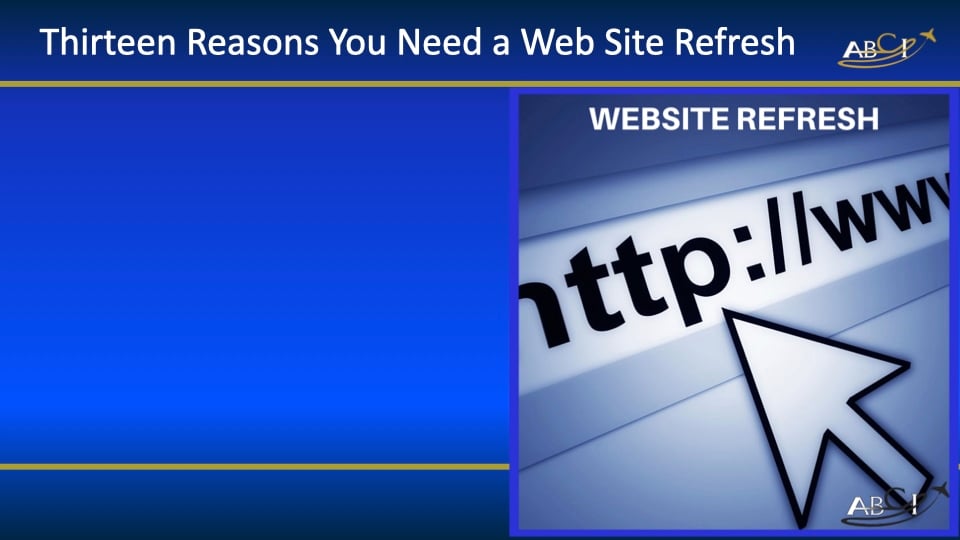
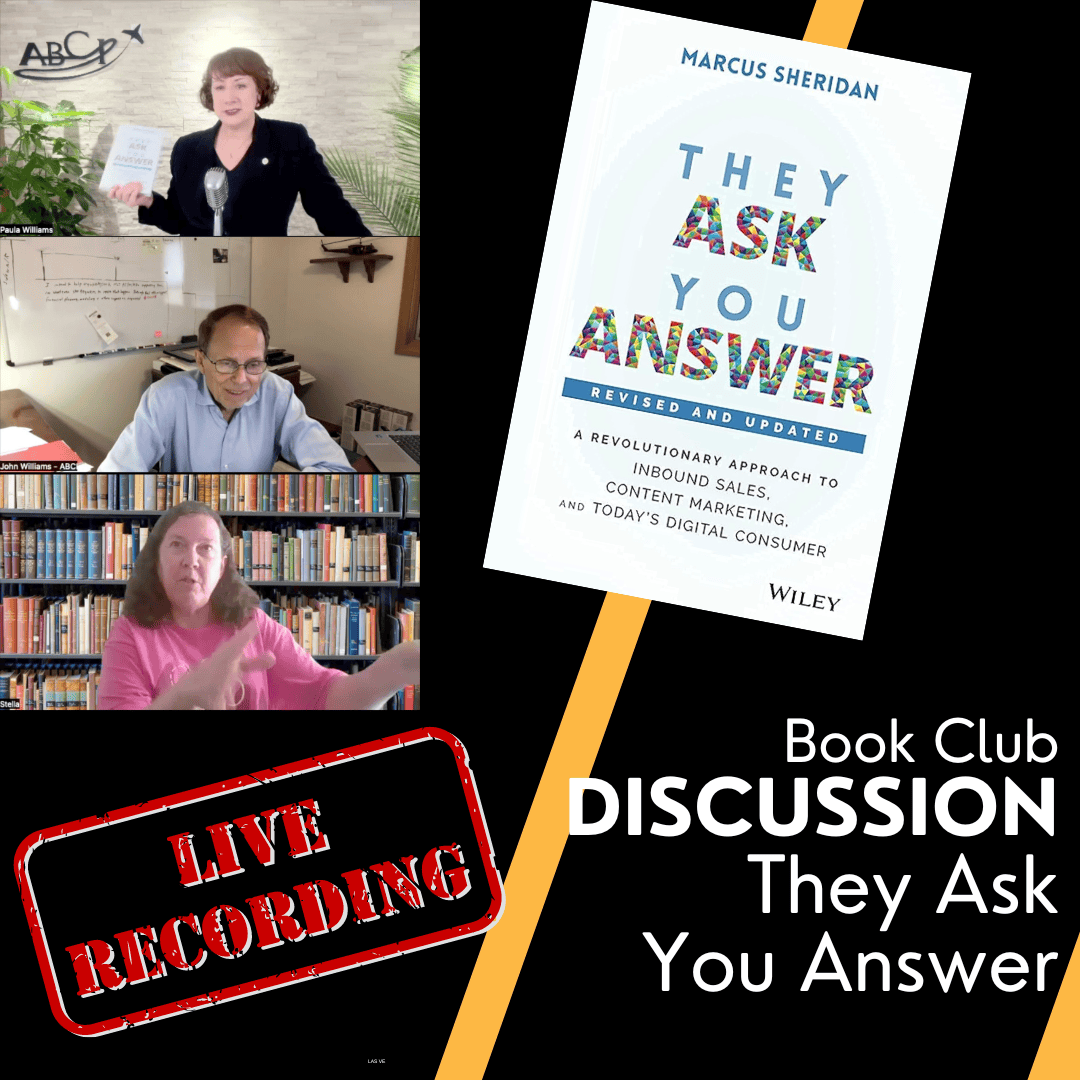


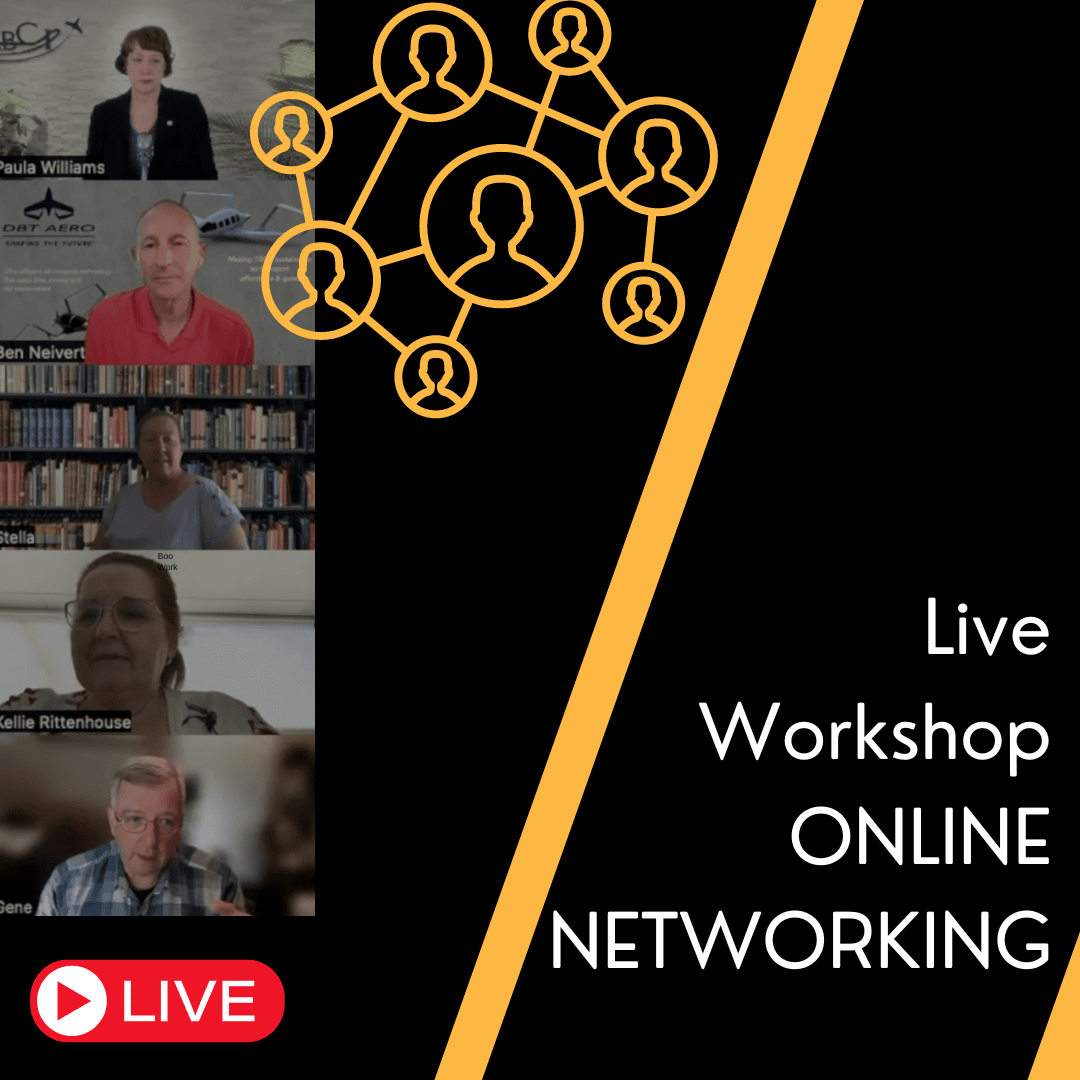
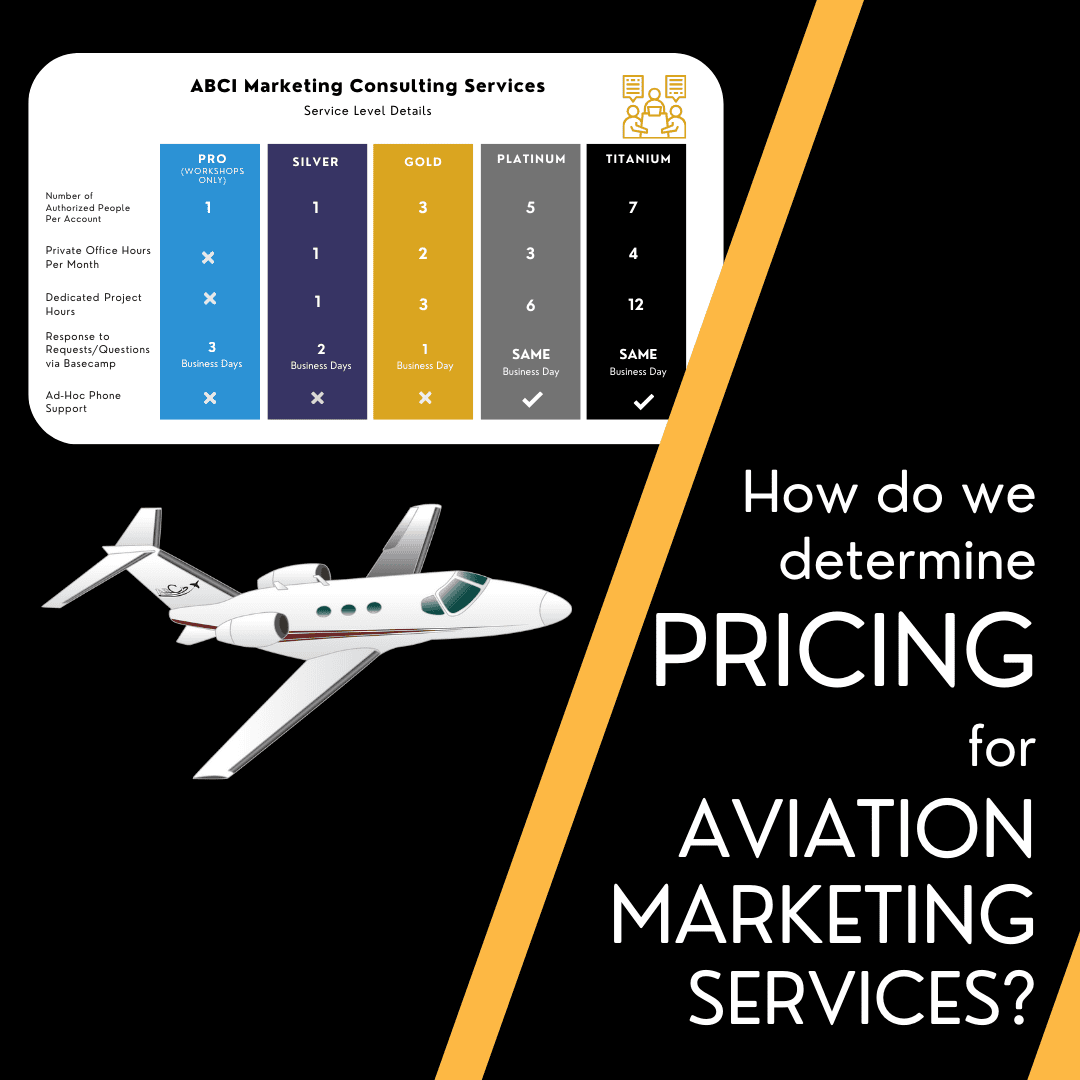
Having a modern website is essential if you want to have a good first impression on your online visitors.